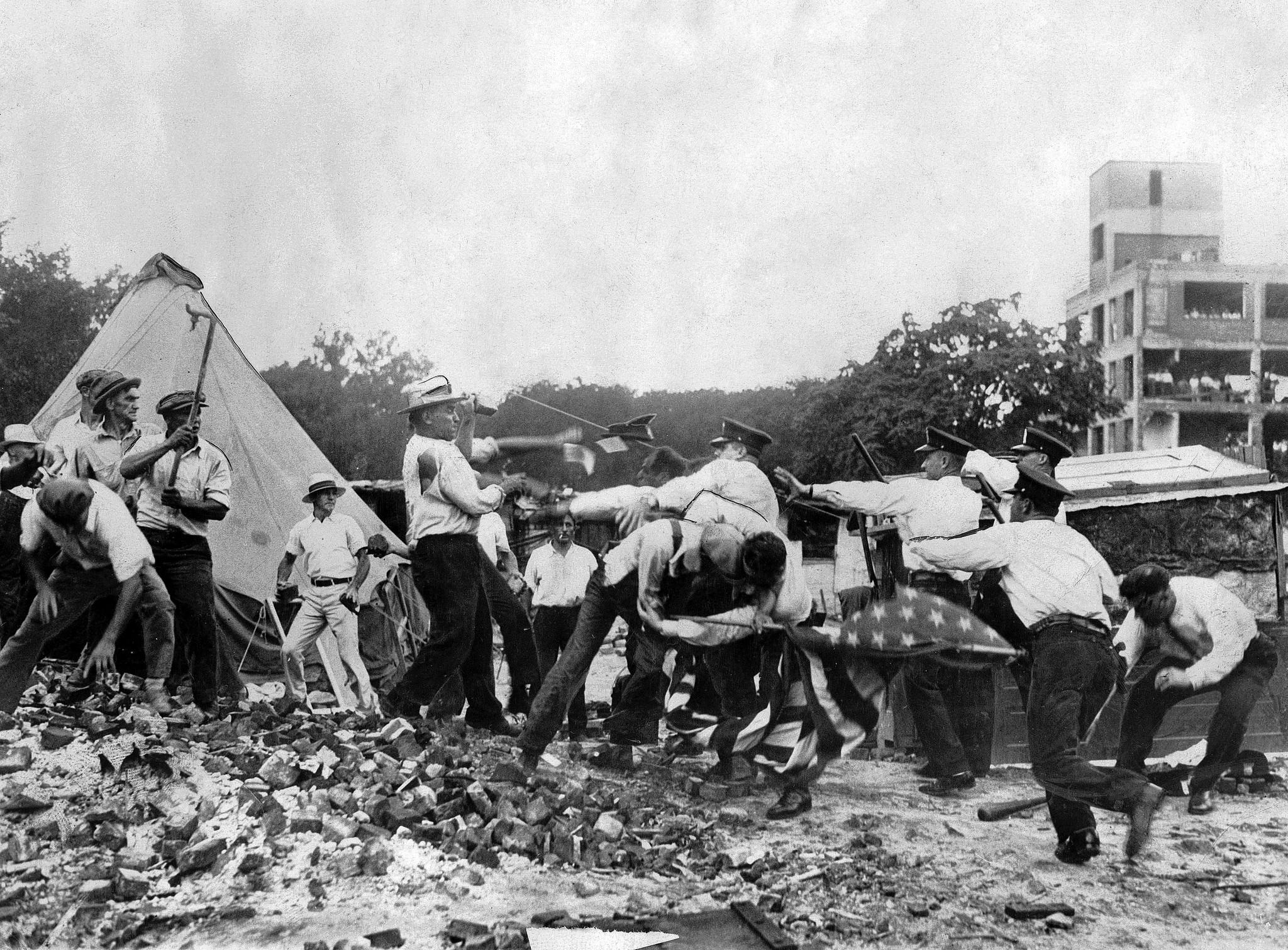
14th Amendment adopted
Following its ratification by the necessary three-quarters of U.S. states, the 14th Amendment, granting citizenship to all persons born or naturalized in the United States—including formerly enslaved people—is officially adopted into the U.S. Constitution. Secretary of State William Seward issues a proclamation certifying the amendment.
Two years after the Civil War, the Reconstruction Acts of 1867 divided the South into five military districts, where new state governments, based on universal manhood suffrage, were to be established. Thus began the period known as Radical Reconstruction, which saw the 14th Amendment, which had been passed by Congress in 1866, ratified in July 1868. The amendment resolved pre-Civil War questions of African American citizenship by stating that “all persons born or naturalized in the United States…are citizens of the United States and of the state in which they reside.” The amendment then reaffirmed the privileges and rights of all citizens, and granted all these citizens the “equal protection of the laws.”
In the decades after its adoption, the equal protection clause was cited by a number of African American activists who argued that racial segregation denied them the equal protection of law. However, in 1896, the U.S. Supreme Court ruled in Plessy v. Ferguson that states could constitutionally provide segregated facilities for African Americans, so long as they were equal to those afforded white persons. The Plessy v. Ferguson decision, which announced federal toleration of the so-called “separate but equal” doctrine, was eventually used to justify segregating all public facilities, including railroad cars, restaurants, hospitals and schools. However, “colored” facilities were never equal to their white counterparts, and African Americans suffered through decades of debilitating discrimination in the South and elsewhere. In 1954, Plessy v. Ferguson was finally struck down by the Supreme Court in its ruling in Brown v. Board of Education of Topeka.

NATURAL DISASTERS & ENVIRONMENT
1976
One of the worst earthquakes in modern history destroys Chinese city
At 3:42 a.m., an earthquake measuring between 7.8 and 8.2 magnitude on the Richter scale flattens Tangshan, a Chinese industrial city with a population of about one million people.

GREAT DEPRESSION
1932
Bonus Marchers evicted by U.S. Army
During the Great Depression, President Herbert Hoover orders the U.S. Army under General Douglas MacArthur to evict by force the Bonus Marchers from the nation’s capital. Two months before, the so-called “Bonus Expeditionary Force,” a group of some 1,000 World War I veterans.

VIETNAM WAR
1965
President Johnson announces more troops to Vietnam
President Lyndon B. Johnson announces that he has ordered an increase in U.S. military forces in Vietnam, from the present 75,000 to 125,000. Johnson also said that he would order additional increases if necessary.

U.S. PRESIDENTS
1929
Future first lady Jacqueline Bouvier Kennedy is born
On July 28, 1929, President John F. Kennedy’s wife, Jacqueline Bouvier Kennedy, is born into a prominent New York family. Jacqueline, or “Jackie” as she was called, grew up an avid horsewoman and reader. In 1951, after graduating from George Washington University.

ART, LITERATURE, AND FILM HISTORY
1978
"Animal House" released in theaters
On July 28, 1978, National Lampoon’s Animal House, a movie spoof about 1960s college fraternities starring John Belushi, opens in U.S. theaters. Produced with an estimated budget of $3 million, Animal House became a huge, multi-million-dollar box-office hit.

NATURAL DISASTERS & ENVIRONMENT
1945
Plane crashes into Empire State Building
A United States military plane crashes into the Empire State Building on July 28, 1945, killing 14 people. The freak accident was caused by heavy fog. The B-25 Mitchell bomber, with two pilots and one passenger aboard, was flying from New Bedford, Massachusetts, to LaGuardia.

WORLD WAR I
1914
Austria-Hungary declares war on Serbia
On July 28, 1914, one month to the day after Archduke Franz Ferdinand of Austria and his wife were killed by a Serbian nationalist in Sarajevo, Austria-Hungary declares war on Serbia, effectively beginning the First World War.
NIGERIA IN HISTORY TODAY

1960 Prof. Charles Chukwuma Soludo, former Central Bank Governor, economist and politician was born. He hails from Isuofia, Aguata, Anambra State Nigeria
Comments
Post a Comment